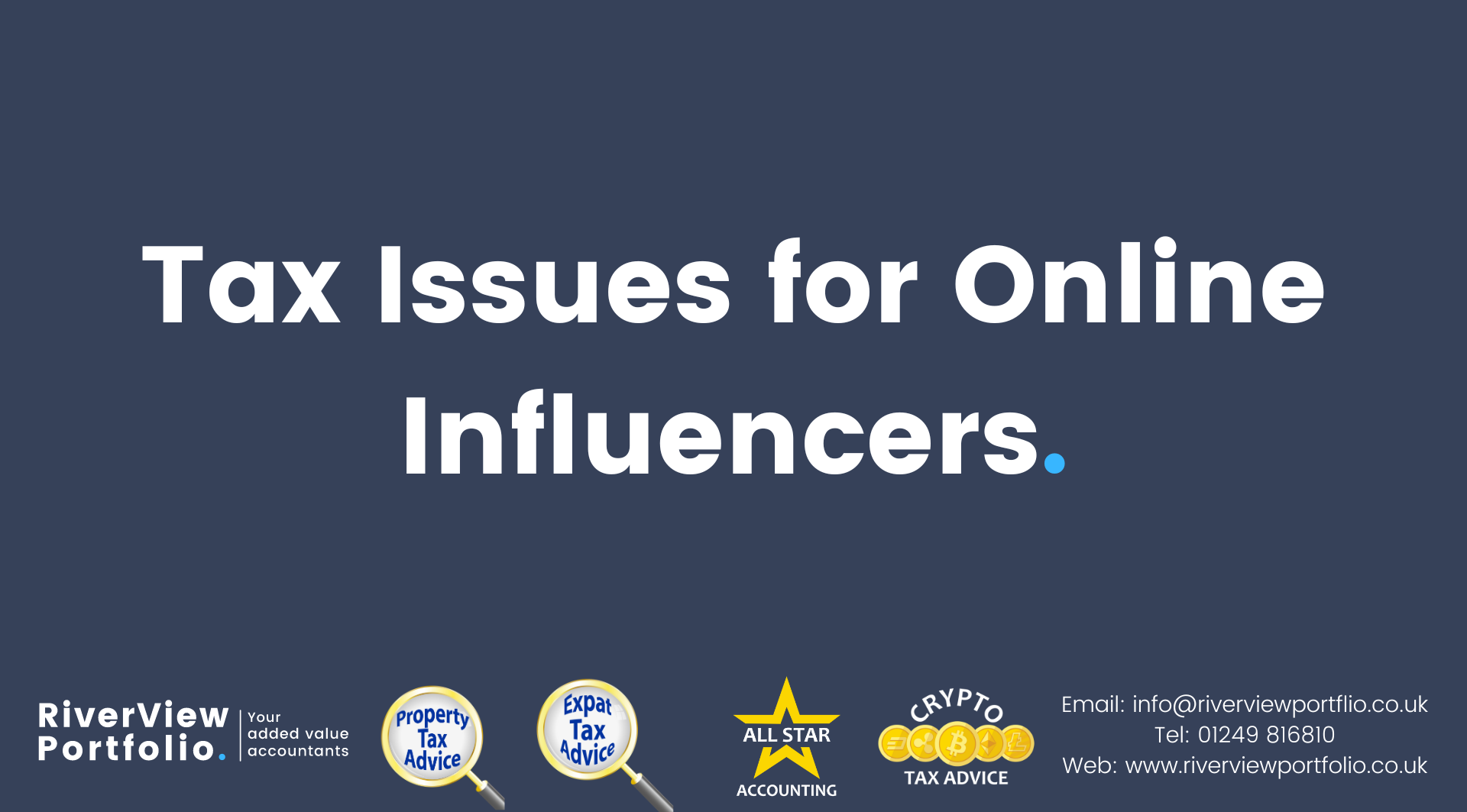Tax issues for Online Influencers
Posted on 6th July 2023 at 12:01
As HMRC targets online #influencers using social media as a platform to promote products, let’s look at the tax pitfalls
Tax considerations
The first point to note is that there are no special tax rules for influencers, who are treated in the same way as other self-employed individuals. What might start as a hobby or side-line to employment can produce increasingly significant amounts of income. If generated from a trade, profession, or vocation, such income is considered taxable in the UK.
Social media influencers vary hugely in background and can be categorised by their follower count.
- Mega-influencers, such as A list celebrities, have a significant public profile and millions of followers.
- Nano-influencers have less than ten thousand followers and may simply be adept at carving out a niche of followers.
Whatever their background, influencers seek to generate revenue by creating valued content and interacting with followers to promote themselves/other brands and to increase the size of their following on online platforms (such as #Instagram, #TikTok and #YouTube).
This might constitute acting as a brand ambassador or advertising a brand – for which they might receive money or be ‘gifted’ a product or service in exchange for promoting the brand. Influencers might also market and sell their own material, eg, music.
This is not just an industry for ‘grown-ups’. It is not uncommon for teenagers to establish an online presence, or for children to earn significant amounts of income from social media influencing (with the term ‘#kidfluencer’ coined to describe such children).
Use of nudge letters
This fast-growing industry has not gone unnoticed by HMRC. Having identified individuals with potential earnings from online activity, HMRC are running targeted campaigns aimed at them, and using compliance techniques to encourage tax compliant behaviour, such as sending ‘nudge letters’ to influencers who may have failed to report or declare earnings in a tax return.
While a nudge letter should not necessarily be seen as the start of a formal statutory investigation into an individual’s tax affairs, it is important that, if a nudge letter is received, it is not ignored.
In many cases, influencers are not deliberately avoiding paying tax – they are simply unaware that they might have a taxable trade or profession which must be reported to HMRC. With money earned through influencing subject, in principle, to income tax and National Insurance contributions, it is important to consider whether what a person (or child under someone’s guardianship) is doing needs to be declared and how this should be done.
Anyone living in the UK and making a profit from online content needs to be aware of their tax obligations. It is likely that the profit will be taxable and must be reported to HMRC through a tax return.
And don’t forget about VAT
As well as income tax issues, an influencer who sells physical goods or who supplies intangible services may have a liability to register for VAT in the UK. A potential VAT liability also exists when supplying digital services to overseas consumers.
If turnover from making taxable supplies (goods and/or services subject to VAT) exceeds the threshold, then the supplier must register for VAT in the country in which they are deemed to be making supplies.
Call to action
Anyone concerned about their tax position should seek help our team by emailing info@property-tax-advice.co.uk. Whether this is action before being nudged or following receipt of one of HMRC’s enquiry letters, we can help you understand your obligations and can ensure appropriate communication with tax authorities.
Failure to act, particularly following receipt of a nudge letter, can lead to higher penalties and an escalation in action from HMRC.
Article based on the information provided by © Robert Marchant and © Croner-i
Share this post:







